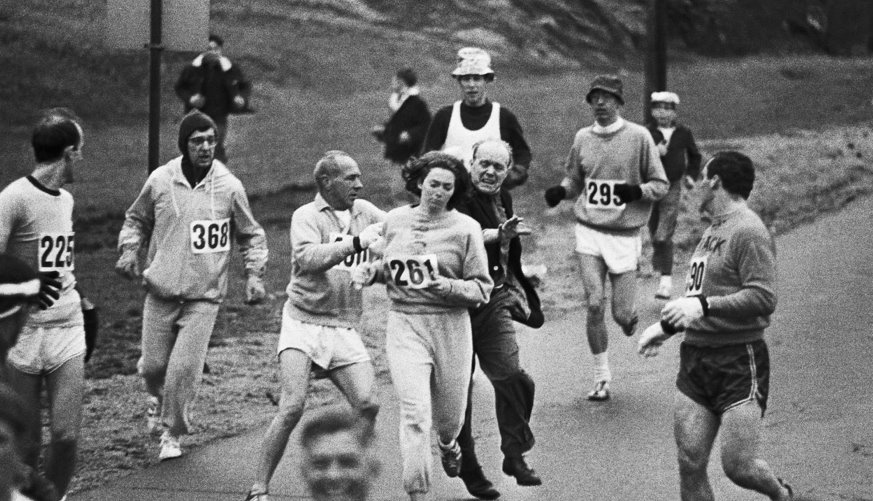
How women’s history month misses the point year after year
By Heather Wentler
I’ve never been a big fan of women’s history month, which might sound weird coming from the leader of an organization dedicated to helping women entrepreneurs make history every day.
But as I read the endless celebratory lists of “groundbreaking women in (fill in the blank state, industry, sport) history” I am always disappointed with the overarching narrative.
Women’s history month misses the point.
From the very beginning, when President Jimmy Carter signed a proclamation that created Women’s History Week in 1980, the narrative of Women’s History Month has been perpetuating a male-centric view of history that erodes the message of the women’s rights movement.
In that proclamation, Carter wrote, “...too often, the women were unsung and sometimes their contributions went unnoticed.”
Carter’s comment frames the glaring omission of women’s achievements from history books as an innocent mistake, ignoring the fact that omitting women’s achievements was never accidental.
Like Kathrine Switzer, the first woman to officially enter and run the Boston Marathon (in 1967), the women we celebrate in Women’s History Month have faced outright opposition, ridicule, and violence in the path to their accomplishments from men, and sometimes other women, who saw them as a threat to the status quo, a stable society, and their power. And in most cases, everyone noticed. Why aren’t their accomplishments in our history books? In many cases, it was because of deliberate efforts to tarnish their reputations, minimize their achievements, or credit their work to the men around them.
It’s not like Switzer ran the marathon and the newspapers just “didn’t notice.” During the race, an official tried to rip her bib off and physically stop her from competing (video). Another official said that if she was his daughter, he would spank her—a 20-year-old woman.
This month, on International Women’s Day, Time magazine released a list of 100 Women of the Year, one for each year going back to 1920, which attempts to make up for the fact that the magazine named a Man of the Year for 72 years without even a mention of a woman. While some might see this as a nice gesture, to me it feels like more window-dressing meant to appease women and distract from the real issues.
Every woman that we celebrate in Women’s History Month overcame just as much as Switzer and in many cases so much more — but all too often, the tributes Women’s History Month serves up amount to a long-overdue pat on the back to people who, according to PBS’ celebration this year, “just happened to be women,” a phrase which minimizes the crucial context of their accomplishments.
By saying someone “just happens to be a woman” there’s a well-meaning attempt to minimize any biological differences between women and men, but it also loses vital context. The idea that the gender of the women we honor during Women’s History Month doesn’t matter is bullshit. It makes all the difference in the world that these people were women because being a woman impacts everything about how you move through the world.
Women’s History Month misses the point every year because it presents women’s accomplishments throughout history without context.
And history without context is just trivia.
Here are five reasons why I’m done with WHM:
There’s an oppressive push to only celebrate progress and ignore the many areas where women are losing ground in our struggles for full autonomy over our own bodies, equal representation in government, equal opportunity, equal wages … you name it:
The gender wage gap is actually increasing between White women and Black women
In 2019, the percentage of VC funding that went to women-led teams stagnated or went down, depending on how you slice the data
In many U.S. states, access to reproductive health is more limited in 2020 than it was even five years ago
This year, anti-feminist counterprotesters threw rocks and shoes at Pakistani women during a Women’s March in Islamabad, after unsuccessfully petitioning the courts to ban the marches.
Women’s History Month exclusively honors women with a lily-white record of sexual purity drawn from a misogynistic, patriarchal double-standard. If a woman had an affair, or had a baby out of wedlock, or posed for naked photos, or fought for the right of other women to do those things — you won’t see her name in mainstream WHM celebrations.
Women’s History Month tokenizes women of color and ignores the fact that the experience of women of color has been and continues to be night-and-day different from the experience of white women in America and around the world. The 2020 theme for Women’s History Month is “100 years of suffrage,” but if the theme actually recognized the experience of women of color, it would need to change to something like “55 years of suffrage give or take depending on your privilege,” recognizing that women of color couldn’t safely vote until after the Voting Rights Act of 1965 — and some still do not feel safe voting. Here’s the theme I’d accept for Women’s History Month 2020: “100 years of White women’s suffrage and continued oppression of our Black counterparts.”
In America, we have a long history of confusing the exception with the rule. When Barack Obama became president, White people everywhere declared that racism was dead, when in reality, racism is alive and well in every corner of American society. With every woman we celebrate in Women’s History Month, we imagine that the glass ceiling in her industry is shattered, because one woman made it through, and thus women who follow will have an easier path. But this attitude ignores the repeated cycle of backlash and gaslighting that follows every step forward that women take, making it harder for one woman to follow in another’s path while simultaneously silencing her with the argument that sexism can’t possibly exist anymore. We get a false sense that sexism has been defeated just because one woman achieved equal status with that of thousands of men in a particular field, when the reality for millions of women is still so different, particularly if they’re not White.
Worst of all, Women’s History Month sends a message that the battles for equality, for autonomy, for representation, for safety, for opportunity — that they have all been won, and we just haven’t done a great job of celebrating how we got here. That could not be further from the truth. The battle is still raging; we are still deep in the trenches and losing allies and soldiers every day thanks to messages of this false victory and celebration.
It’s time to shift the narrative around Women’s History Month away from light conversation for the dinner table — “look how quaint society was back then that they didn’t think women could run marathons or do surgery or discover new scientific theories” — to a narrative that spurs change. A narrative that reminds the world of how far we still have to go, and how much adversity women have overcome to gain every single inch of equality, and how hard we have to fight now not to lose our gains.

